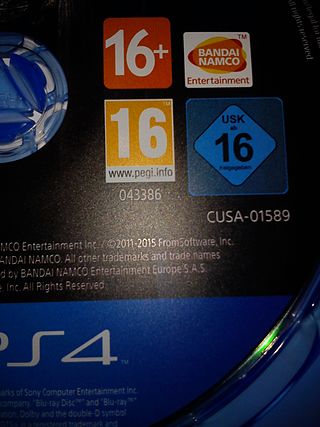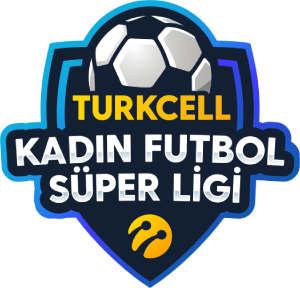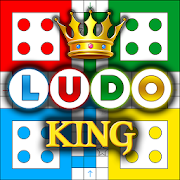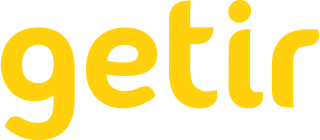
The Turkish Radio and Television Corporation is the national public broadcaster of Türkiye, founded in 1964. TRT was for many years the only television and radio provider in Turkey. Before the introduction of commercial radio in 1990, and subsequently commercial television in 1992, it held a monopoly on broadcasting. More recent deregulation of the Turkish television broadcasting market produced analogue cable television. Today, TRT broadcasts around the world, including in Europe, Middle East, Africa, Asia, the United States, and Australia.

PEGI, short for Pan-European Game Information, is a European video game content rating system established to help European consumers make informed decisions when buying video games or apps through the use of age recommendations and content descriptors. It was developed by the Interactive Software Federation of Europe (ISFE) and came into use in April 2003, replacing many national age rating systems with a single European system. The PEGI system is now used in 41 countries and is based on a code of conduct, a set of rules to which every publisher using the PEGI system is contractually committed. PEGI self-regulation is composed by five age categories and nine content descriptors that advise the suitability of a game for a certain age range based on the game's content. The age rating is not intended to indicate the difficulty of the game or the skill required to play it.

Sony Interactive Entertainment LLC (SIE) is an American multinational video game and digital entertainment company of Sony. Jointly established by two subsidiaries in 2016, it primarily operates the PlayStation brand of video game consoles and products. It is also the world's largest company in the video game industry based on its equity investments.

The Turkish Football Federation is the governing body of association football in Turkey. It was formed on 23 April 1923, and joined FIFA the same year and UEFA in 1962. It organizes the Turkey national football team, the Turkish Football League and the Turkish Cup.
Koç Holding A.Ş. is the largest industrial conglomerate in Turkey, and the only company in the country to be listed on the Fortune Global 500 as of 2023. The company, headquartered in Nakkaştepe, Istanbul, is controlled by the Koç family, one of Turkey's wealthiest families.
Radikal was a daily liberal Turkish language newspaper, published in Istanbul. From 1996 it was published by Aydın Doğan's Doğan Media Group. Although Radikal did not endorse a particular political alignment, it was generally considered by the public as a social liberal newspaper. Despite only having a circulation of around 25,000, it was considered one of the most influential Turkish newspapers.

Bandai Namco Entertainment Inc. is a Japanese multinational video game publisher owned by Bandai Namco Holdings. It was founded in 2006 as Namco Bandai Games Inc., following the 2005 merger of Namco and Bandai. Namco acquired Bandai's video game business division through a corporate split. In 2009, Bandai Namco Games absorbed Bandai Networks. It is headquartered in Minato, Tokyo.
Kongregate is an American web gaming portal and video game publisher. Its website features over 124,000 online games and 30+ mobile games available to the public. The company also publishes games for PC, mobile, and home consoles. It was purchased by GameStop Corporation in 2010 before being acquired by Modern Times Group MT AB in 2017.

A video game content rating system is a system used for the classification of video games based on suitability for target audiences. Most of these systems are associated with and/or sponsored by a government, and are sometimes part of the local motion picture rating system. The utility of such ratings has been called into question by studies that publish findings such as 90% of teenagers claim that their parents "never" check the ratings before allowing them to rent or buy video games, and as such, calls have been made to "fix" the existing rating systems. Video game content rating systems can be used as the basis for laws that cover the sales of video games to minors, such as in Australia. Rating checking and approval is part of the game localization when they are being prepared for their distribution in other countries or locales. These rating systems have also been used to voluntarily restrict sales of certain video games by stores, such as the German retailer Galeria Kaufhof's removal of all video games rated 18+ by the USK following the Winnenden school shooting.
The United Kingdom has the largest video game sector in Europe. By revenue, the UK had the second-largest video game market in Europe in 2022 after Germany, and the sixth-largest globally. By sales, it is Europe's largest market, having overtaken Germany in 2022. The UK video game market was worth £7.16 billion in 2021, a 2% increase over the previous year.

The Turkish Women's Football Super League, also known as the Turkcell Women's Football Super League for sponsorship reasons, is the top level women's football league of Turkey. In the 2023–24 season, 16 teams play a double round robin to decide a champion club, which qualifies for a spot in the UEFA Women's Champions League.
Video game development is a developing industry in the Ireland, with some government attempts made to encourage investment via tax breaks. Of the approximately €206 million spent by Irish people on video games in 2015, Irish game developers "[saw] little of this spend".
The 2011–12 season was Fenerbahçe's 54th consecutive season in the Süper Lig and their 105th year in existence.
Video gaming in France is one of the largest markets in Europe. The French government gives special tax breaks to video game companies. In 2014, the French diplomatic service released a report which calculates the profit generated by the French video game industry at €2.7 billion. It states that there are 300 video game companies in France. It estimates the number of jobs directly related to the video game industry at 5,000. It estimates the number of indirect jobs created by the video game industry at 10,000. The report found that in 2013, around 8 out of 10 people had played a video game in the last 12 months. In 2018, the number of players was estimated at 32.8 million. In France video games have equal status as an artform, alongside more traditional formats like painting and theatre. In 2016, the French Minister of State for Digital Affairs, Axelle Lemaire, held talks with various French video game industry figureheads to find solutions to the problem of misogyny in video games. She mooted solutions like removing tax credits for publishers who publish games with misogynistic content, and creating a label which would identify video games with positive representations of women.
Video games are a rapidly growing industry in Thailand, with an average growth rate of 15% per year since 2017. In 2021, the Thai games market generated over a billion dollars, making it one of the highest-profile games markets in Southeast Asia. The number of gamers in Thailand has reached 32 million according to a report by Newzoo, an international games and esports analytics and market research group. And in 2022, Thailand was ranked among the top Southeast Asian video-game markets, with a revenue of US$1.24 billion that is forecasted to reach $1.4 billion in the same year.

A digital collectible card game (DCCG) or online collectible card game (OCCG) is a computer or video game that emulates collectible card games (CCG) and is typically played online or occasionally as a standalone video game. Many DCCGs are types of digital tabletop games and follow traditional card game-style rules, while some DCCGs use alternatives for cards and gameboards, such as icons, dice and avatars. Originally, DCCGs started out as replications of a CCG's physical counterpart, but many DCCGs have foregone a physical version and exclusively release as a video game, such as with Hearthstone.
Video games can include elements that use blockchain technologies, including cryptocurrencies and non-fungible tokens (NFTs), often as a form of monetization. These elements typically allow players to trade in-game items for cryptocurrency, or represent in-game items with NFTs. A subset of these games are also known as play-to-earn games because they include systems that allow players to earn cryptocurrency through gameplay. Blockchain games have existed since 2017, gaining wider attention from the video game industry in 2021. Several AAA publishers have expressed intent to include this technology in the future. Players, developers, and game companies have criticized the use of blockchain technology in video games for being exploitative, environmentally unsustainable, and unnecessary.

Ludo King is a free-to-play mobile game application developed by Gametion Technologies Pvt Ltd, a game studio based in Navi Mumbai, India. Gametion is owned by Vikash Jaiswal. The game is developed on the Unity game engine and is available on Android, iOS, Kindle, Windows Phone and Microsoft Windows platforms. The game is a modernization of the board game Ludo, which is based on the ancient Indian game of Pachisi.

Getir is a Turkish company, operating in several countries until 2024, founded as a startup company in 2015 that offers rapid on-demand delivery services for grocery items and a courier service for restaurant food deliveries, accessed via a mobile app.

Mevlüt Dinç, better known as Mev Dinc, is a Turkish-British video game designer. Born and raised in Turkey, he moved to England in 1979 while finishing his studies, intending to pursue a master's degree there. Unable to pay the high tuition fees for international students, Dinc worked in a cable factory in Southampton, where a colleague introduced him to video games and got him a ZX Spectrum when it was released in 1982. Dinc taught himself to program via magazines and began working in the video game industry in 1983, starting with assisting on the Commodore 64 conversion of Ant Attack, released in 1984. After his first original game, Gerry the Germ Goes Body Poppin', in 1985, he worked with Electric Dreams Software on another original game, Prodigy, the Amstrad CPC port of Enduro Racer, and various tie-ins with films and TV series.










